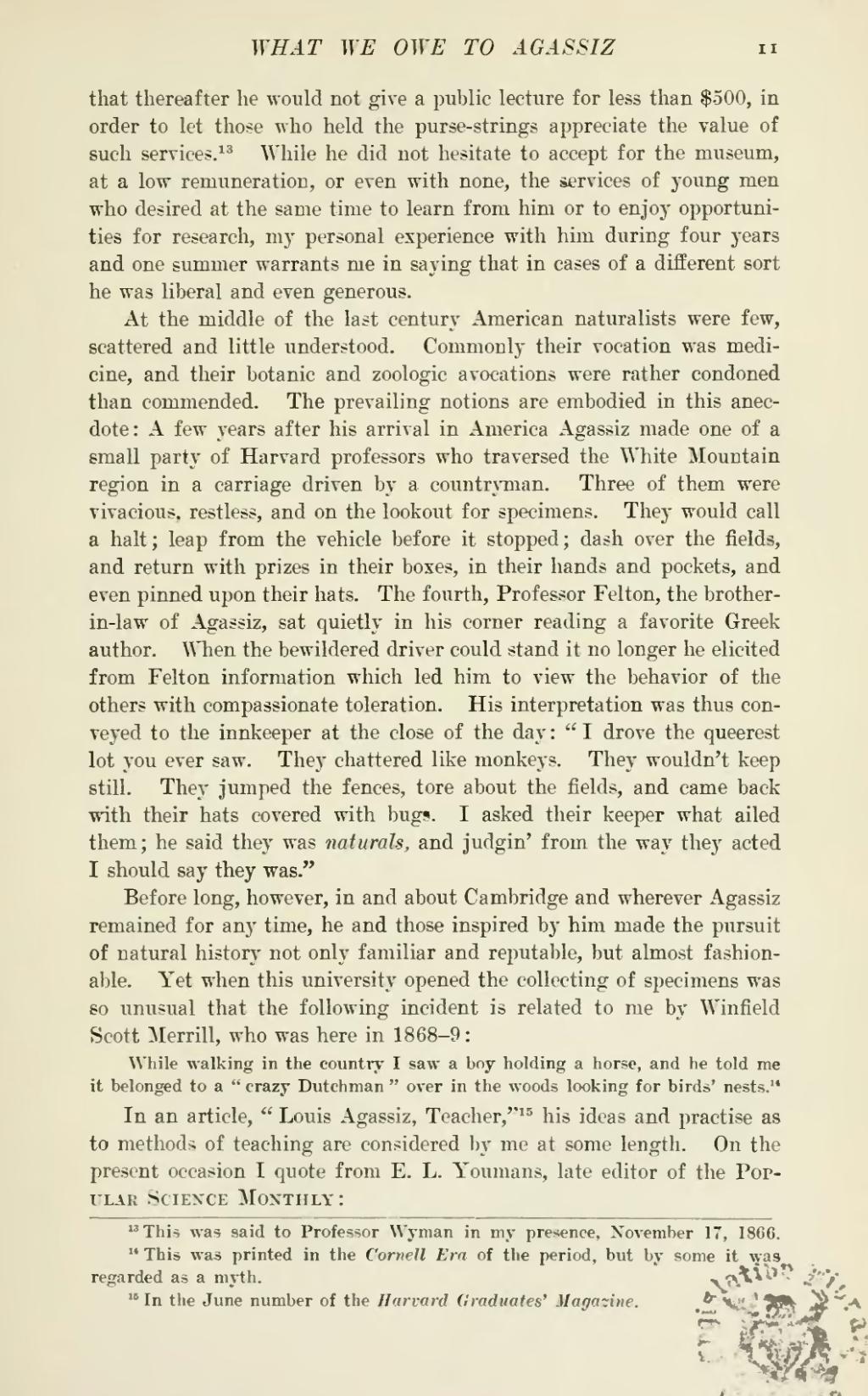that thereafter he would not give a public lecture for less than $500, in order to let those who held the purse-strings appreciate the value of such services.[1] While he did not hesitate to accept for the museum, at a low remuneration, or even with none, the services of young men who desired at the same time to learn from him or to enjoy opportunities for research, my personal experience with him during four years and one summer warrants me in saying that in cases of a different sort he was liberal and even generous.
At the middle of the last century American naturalists were few, scattered and little understood. Commonly their vocation was medicine, and their botanic and zoologic avocations were rather condoned than commended. The prevailing notions are embodied in this anecdote: A few years after his arrival in America Agassiz made one of a small party of Harvard professors who traversed the White Mountain region in a carriage driven by a countryman. Three of them were vivacious, restless, and on the lookout for specimens. They would call a halt; leap from the vehicle before it stopped: dash over the fields, and return with prizes in their boxes, in their hands and pockets, and even pinned upon their hats. The fourth, Professor Felton, the brother-in-law of Agassiz, sat quietly in his corner reading a favorite Greek author. When the bewildered driver could stand it no longer he elicited from Felton information which led him to view the behavior of the others with compassionate toleration. His interpretation was thus conveyed to the innkeeper at the close of the day: "I drove the queerest lot you ever saw. They chattered like monkeys. They wouldn't keep still. They jumped the fences, tore about the fields, and came back with their hats covered with bugs. I asked their keeper what ailed them; he said they was naturals, and judgin' from the way they acted I should say they was."
Before long, however, in and about Cambridge and wherever Agassiz remained for any time, he and those inspired by him made the pursuit of natural history not only familiar and reputable, but almost fashionable. Yet when this university opened the collecting of specimens was so unusual that the following incident is related to me by Winfield Scott Merrill, who was here in 1868-9:
In an article, "Louis Agassiz, Teacher,"[3] his ideas and practise as to methods of teaching are considered by me at some length. On the present occasion I quote from E. L. Youmans, late editor of the Popular Science Monthly:
